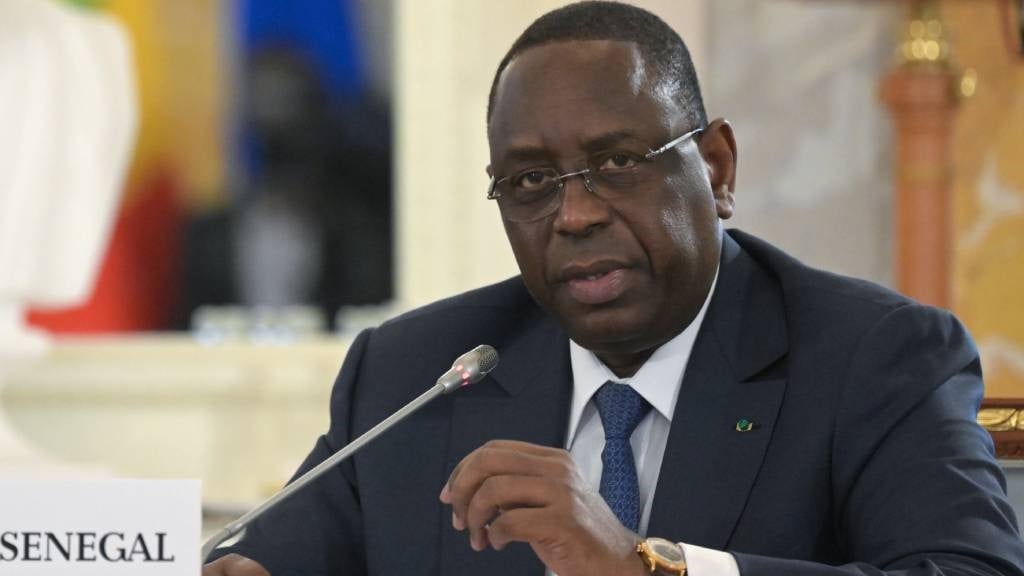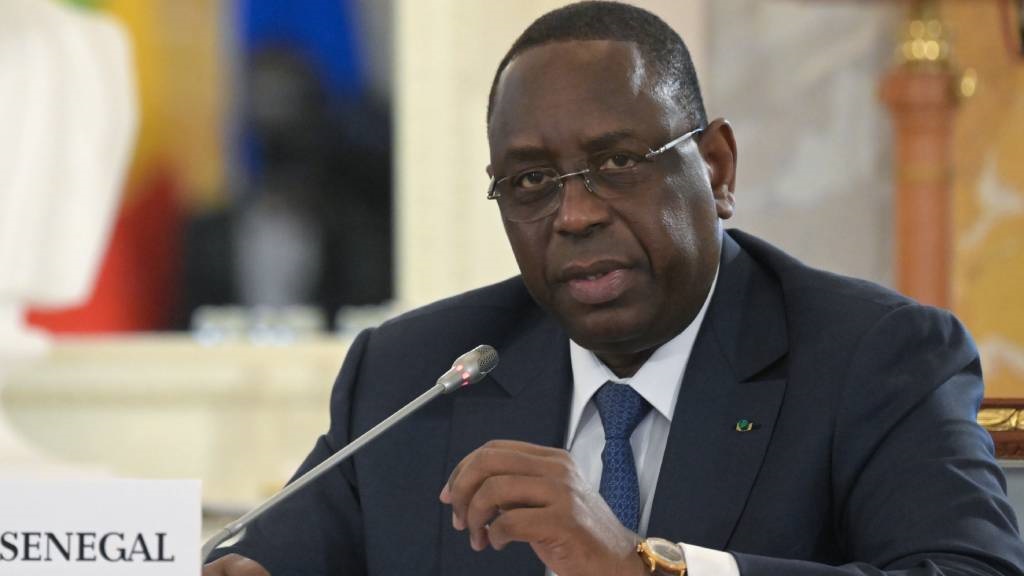

Senegal President Macky Sall.
Evgeny Biatov/Ria Novosti/AFP
- Crisis talks in Senegal entered their second day on Tuesday, aimed at setting a date for a presidential election.
- The country is grappling with its worst political crisis in decades after Sall’s last-minute deferral of the 25 February election.
- The civil society collective has called on the country’s president to take “all necessary steps to set the date and organise the 2024 presidential election before 2 April”.
Crisis talks called by Senegal President Macky Sall entered their second day Tuesday aimed at setting a date for a presidential election he postponed, while civil society tried to mobilise support for a vote in the next few weeks.
Senegal is grappling with its worst political crisis in decades after Sall’s last-minute deferral of the 25 February election.
The Constitutional Council overturned the delay and Sall – whose second term expires on 2 April – on Monday launched two days of talks to set a new date.
The Aar Sunu Election (Protect Our Election) collective of over 100 civil society groups called for city-wide shutdowns across the country and a general strike on Tuesday, demanding the poll take place before Sall leaves office.
Two high schools near the centre of the capital Dakar cancelled classes, an AFP journalist saw.
But overall, the call appeared to go largely unheeded in central districts of the city by late morning.Public transport continued as normal, and the usual crowds filled the alleys of the bustling Colobane market.
“We live from day to day, so we can’t afford to go a day without working, otherwise our families won’t eat,” said shopkeeper Saer Dieng, 37.
Badara Dione, a 40-year-old motorbike taxi driver, said he wasn’t aware of the call to strike.
“A general strike doesn’t suit us. The postponement of the election certainly hurts us, but personally I prefer to concentrate on my work,” he added.
The civil society collective has called on Sall to take “all necessary steps to set the date and organise the 2024 presidential election before 2 April”.
‘National dialogue’
Aar Sunu Election is part of a widespread political and civic movement, which galvanised after Sall’s 3 February decision to postpone the ballot.
Four people died in ensuing protests.
In power since 2012, Sall said he called off the vote over disputes about the disqualification of potential candidates and fears of a return to unrest as in 2021 and 2023.
The Constitutional Council, the top constitutional body, ruled the delay unlawful and called for the vote to be organised “as soon as possible”.
On Monday, Sall opened a “national dialogue” aimed at reaching a “consensus” on a new date and on what will happen after the end of his mandate.
Hundreds of political leaders, civil society representatives and religious figures gathered for the two-day meeting in the new town of Diamniadio, some 30 kilometres from Dakar.
But 17 of the 19 candidates approved by the Constitutional Council to stand in the election have boycotted the discussions, as did Aar Sunu Election and other civil society groups.
The opposition says the dialogue is a stalling mechanism and that the talks should focus solely on how to organise the election before Sall leaves office.
The president on Monday proposed that the vote could be held by the start of the rainy season in June or July.
He has previously cast doubt on the feasibility of staging it before the end of his term.
‘National reconciliation’
Several would-be presidential contenders have asked the Constitutional Council to formally hold Sall accountable for not fulfilling his duty to organise the poll.
On Monday, Sall reiterated his commitment to leave office as planned and vowed a “national reconciliation” after three years of unrest.
He also announced an amnesty bill for political protests since 2021 which has proved controversial in various political circles.
Some of those taking part in the national dialogue have asked Sall to stay on until his successor is installed, including beyond 2 April.

